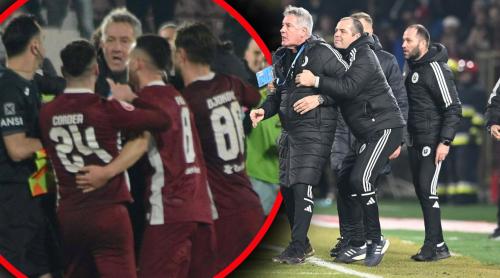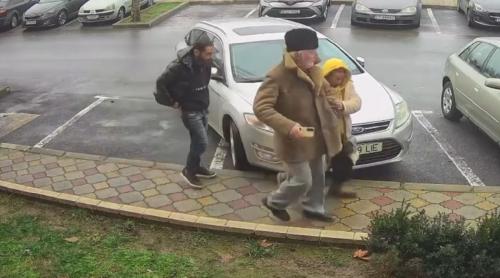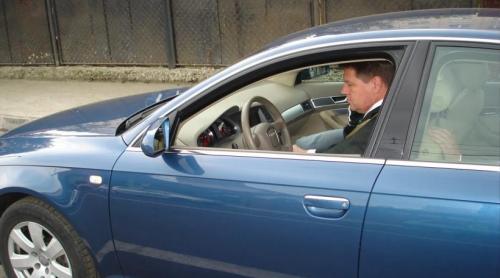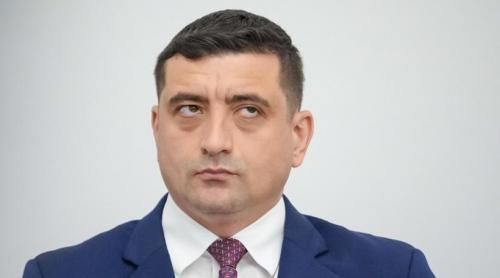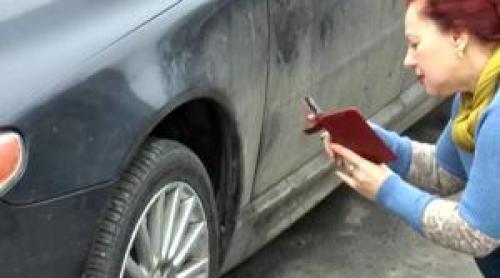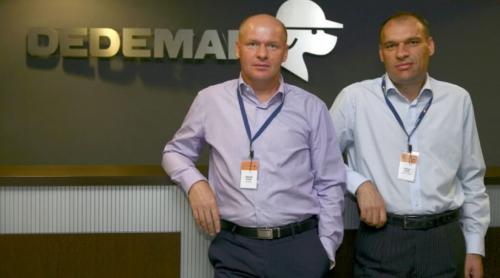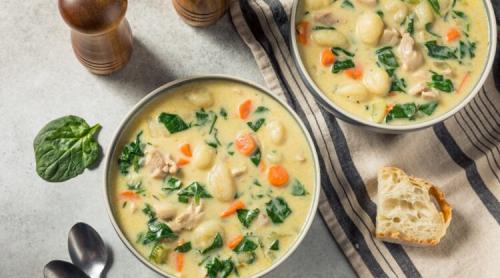
Onno Simons is deputy head of the Delegation of the EU Commission in Bucharest and head of the Political, Economics and Communication Department. He took his new office almost two years ago, on 15 August 2003. A Dutch national, Simons likes the Balkan, boisterous style of Romanians.
Recently he gave an interview to Jurnalul National:Jurnalul National: Which was the thing that impressed you most when you arrived to Romania?
Onno Simons: Right across the apartment I was to live I noticed a building lacking character but having instead a lot of aerials on top of it and many white cars, with no registration plates, in front of it. I asked what was in that building and I was told that it was the headquarters of the intelligence services.
JN: Does a Westerner experience a cultural shock when living in Romania?
OS: It may be something of the kind, but this is a feeling a Westerner would have when going anywhere in Southern or Eastern Europe, like in Italy or Greece, for that matter.
Life has a different rhythm, people are different, behave differently, and their living style - be it Mediterranean or Balkan - is totally different than the one in West, and more so than the one in Northern Europe. I come from Holland, where the foundation of the international law had been laid. The Dutch lead their lives according to the set of laws and rules they have established. This is their custom. Part of the cultural shock when coming to Romania, I think, is that here rules and laws do not guide the peopleâs lives. But this should change, because the European Union sRomania hopes to integrate in on 1 January 2007t is based on law abidance.
JN: What do you mean by "different life"?
OS: The life rhythm is different. For instance, when I leave office around 7 p.m. I see the city bustling with life. Unfortunately, I am often too tired to take part in it. The cultural life is also very active and I am sure there is an equally active night-life, but I did not test it on my own. At the end of the working day I am happy to go home and be with my family and rest. This is why I said Romania is more "alive" than many other countries.
JN: Your wife and daughter accompanied you since your first day on the job here. How did they adapt to Romania?
OS: Our daughter is four now and attending an English language kindergarten. She adapted well here. My wife experienced some problems in Romania. My previous position had been in Slovakia, which is a Slav country, and my wife felt comfortable there since she is of Russian origin so she could easily learn the language and also had access to Russian television stations. Whereas here the language is totally alien to her, and is not easy to learn either.
JN: You said you travel by bus? Do you, really?
OS: Indeed I do. On a daily basis. My work is stressful enough, so I said that I should not subject myself to the added stress of driving a car. I use mostly busses and the subway.
JN: These are not typical choices for a diplomat, are they?
OS: It is important for us, the people representing here the European Commission to keep contact with what is going on around us. When a driver takes you from one place to another you cannot claim to have witnessed a lot. Furthermore, using public transportation also suits my life style and allows me to see the real people, to know them, to understand them â¦
JN: Do you also go shopping?
OS: Yes, of course. We live close to 1 May Market, so we regularly go there, but we also went to Obor Market Place sthe biggest market for agricultural products in Bucharest, trans. notet. Both my wife and I like market places, particularly my wife, who is originally form Kazakhstan and is used to the bazaar atmosphere, to search for the right kind of merchandise and to bargain. Of course, Obor market is a distant relative of a market place in Brussels, but once you have experienced Central Asia, you are prepared to have a wide range of experiences â¦
JN: What is it you would have liked to do and did not have the time for, as yet?
OS: To travel. There are 107 people on staff at the Delegation and yet the work load is very big for each of us. Sometimes, the stack of papers for me to sign is built so high on my secretaryâs desk that I cannot see her sitting behind it.
JN: Do you have any favorite places in Romania?
OS: Iâve been to Sighisoara, and I liked it a lot. We hope to be able to take a week off at the end of the month and travel to Sibiu, a city I heard so many good things about. It will be our first such trip since we arrived here two years ago. We also like the architecture of Brasov and Cluj; another very interesting city is Timisoara, where people display a different mentality. Things advance there at a different pace, both inside the business community and in the administration.
JN: What is your wife cooking for you?
OS: International cuisine. She also cooks rolled cabbage sone of Romaniaâs national dishes of Oriental origin, trans. notet, but they this dish is also part of the Russian cuisine. She adopted many recipes from the Western cuisine. I, for one, love Indonesian cuisine, but I prefer to be the chef, then.
JN: Do you cook Romanian dishes?
OS: No, but I drink Romanian wines. I love them. As for your custom to treat your guests with the best food you have in the house, this is a custom common to many peoples, but not to the Dutch. Usually, tea and cookies will do, when one has guests over in The Netherlands, and everybody is happy with that. When I tried to suggest my wife to adapt the easy-going Dutch style she protested, saying it was out of the question, and that she had to do a full course meal in order to feel comfortable that she welcomed her guests properly.
JN: How was it to locate for work in a country you heard only bad things about?
OS: I traveled before to Romania. It was in 1974, when I backpacked around Europe, while still a student. It cost me then 150 euros for one month of travel. Or the equivalent of that, since there was no such thing as a euro at the time. Anyway, I spent five days in Romania and I spent most of it in the Banat region swestern Romania, trans. notet. I remember that the Soccer World Championship was not broadcast in Romania, so I left the country to see the finals, which opposed Germany and The Netherlands sand was won by Germany, 2:1t So, I had a rough idea of what Romania looked like, though I did not get that far as to reach Bucharest. It was my first option on my list, when I had to be relocated, and I was very happy to get the job, since the professional challenges are very important. Though I was aware of its problems, I also knew Romania was a very interesting country both historically and geographically.
JN: The Dutch are famous for their tolerant nature â¦
OS: Yes, so it is, or so it was for a long time, since lately we had our share of problems in that regard too. But letâs say that in all, we are a tolerant nation â¦
JN: So, how do Romanians do on this?
OS: Romanians are not that used to foreigners, but this is about to change; of course, there are some conservative attitudes too â¦
JN: What could Romanian be famous for?
OS: For their adaptability. Romanians work almost in every European country, which goes to show that if they have a tough time finding work here, they are ready to cross borders, find work, adapt and thrive in other countries. Not many peoples are as hard working and easily adaptable to different circumstances as Romanians are.
Citește pe Antena3.ro



